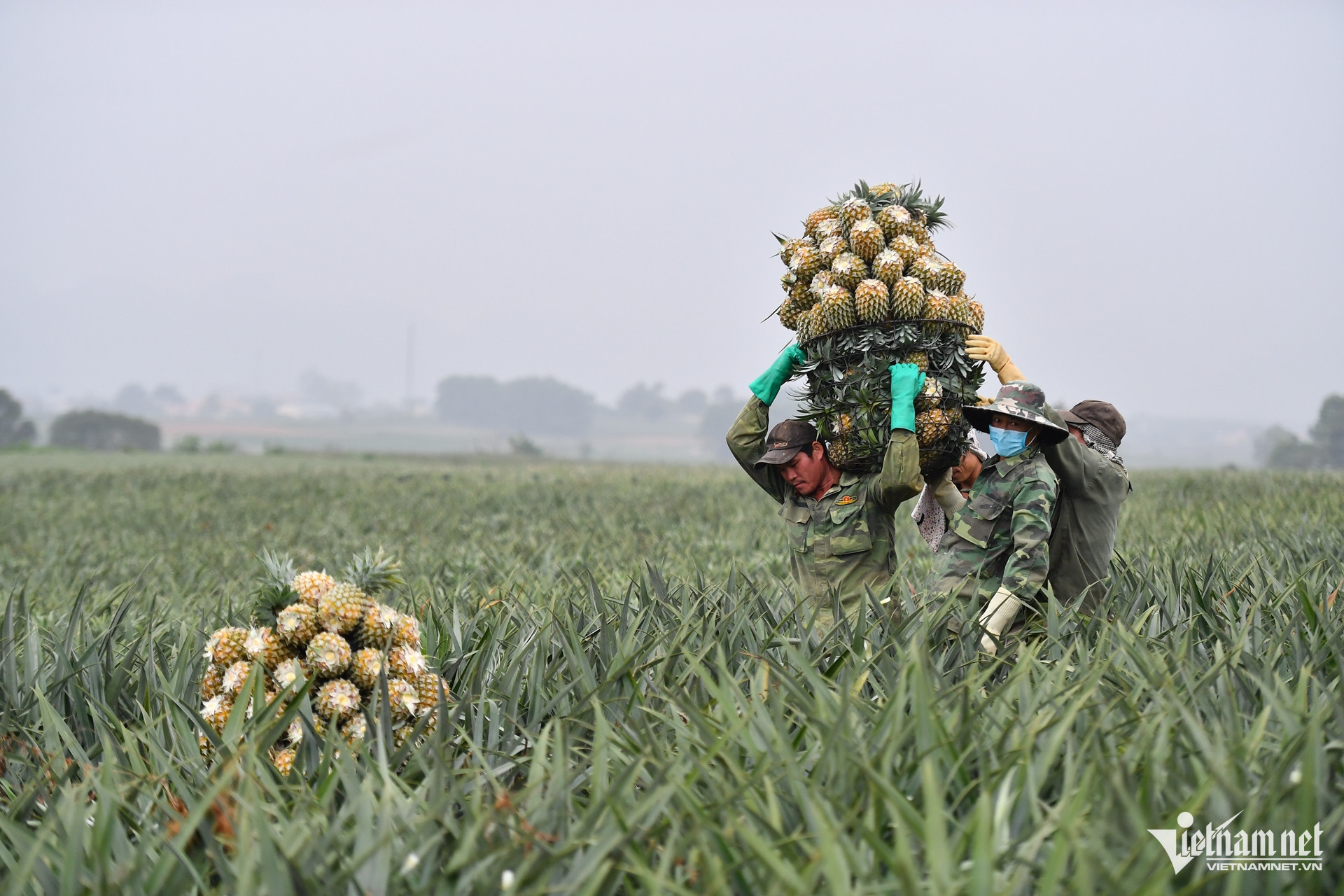
During the peak coconut season in February–March, Nam Mekong Agricultural JSC planned to buy coconuts from farmers in Ben Tre at VND12,000 per fruit at the orchard under contracts they had previously signed.
However, farmers broke the contracts and sold coconuts to Chinese traders which offered higher prices, VND13–14,000 per fruit.
“This issue gives us a headache,” said Dang Quy Nhan, CEO of Nam Mekong Agricultural JSC, in an interview with VietNamNet.
Farmers selling to other buyers caused the company to miss export volumes to the Middle East, Japan, and South Korea, resulting in contract penalties.
In contrast, during the off-season, Chinese traders are nowhere to be seen, so farmers rush to sell to businesses.
“In the off-season, farmers sell us 10 tons. During peak season, they sell only 3–4 tons, with the remaining 6–7 tons is sold to traders at higher prices,” Nhan explained.
Despite partnerships, contracts for guaranteed purchases, and fertilizer provisions, businesses struggle to control farmers’ sales due to vast cultivation areas. Many companies have ceased operations after farmers “broke deals.”
The issue of “breaking agreements” in farmer-business cooperation was a key topic at the Forum on Promoting Exports of Passion Fruit, Banana, Pineapple, and Coconut, organized by the Ministry of Agriculture and Environment in HCMC on July 18.
Nguyen Manh Hung, Chair of Nafoods JSC, said Nafoods has contracted 5,000 hectares with cooperatives in the Central Highlands; the areas are digitized, traceable, and well-managed.
The company signs minimum-price purchase contracts with cooperatives, and if market prices fall below the minimum price, Nafoods buys at the minimum price but limits quantities per hectare.
For example, the minimum price for passion fruit is fixed at VND6,000 per kg. If the market price drops to VND4,000 per kg, Nafoods will still buy at the fixed price but caps purchases at 40 tons per hectare.
“If we detect sales outside the contract, we will terminate cooperation. After 2–3 years, cooperatives and farmers become fully committed to us. When prices are high, we buy at or above market rates. When prices are low, we still buy, so farmers see the benefits of cooperation,” Hung said.
However, he questioned the state’s management mechanisms, wondering why Chinese traders can directly come to growing areas buy fruits at source. At first, they regularly collect fruits, but disappear after 5-6 purchases. Many farmers in the Mekong Delta have lost buyers for this reason.
“In Japan and China, foreign companies cannot come directly to growing areas and buy products directly from local farmers like this. Without stricter management, this issue will persist,” the Nafoods representative warned.
Addressing businesses’ concerns about broken commitments, Deputy Minister of Agriculture and Environment Tran Thanh Nam said companies should not confuse sales contracts with production linkage contracts.
He noted that Government Decree No98/2018 on promoting cooperative production and agricultural product consumption clearly regulates linkages between businesses and farmers, from input to output. Businesses following such linkage contracts are unlikely to fail, as the decree specifies responsibilities for all parties.
In contrast, with simple sales agreements, farmers can sell to others at harvest time if they are offered higher prices.
“Many businesses demand penalties, even criminal action, against farmers for breaking deals. However, businesses should review their approach. Penalizing farmers like this isn’t feasible,” Nam said.
Building farmer-business cooperation
To address contract breaches, and boost fruit export capabilities, Tran Minh Hai, Vice Principal of the School of Public Policy and Rural Development, said that cooperation is the critical solution.
“Businesses must collaborate with cooperatives to manage planting area codes, organize raw material zones, and control output. Cooperatives are not just technical hubs but also strategic partners in logistics and product quality,” he added.
Hung warned that without strict control, the four-party linkage model risks collapsing when agricultural prices fluctuate. He cited Nafoods’ VND200 billion loss after seven years of pineapple investment when farmers breached contracts to sell fruits at higher prices elsewhere.
At the forum, Deputy Minister of Agriculture and Environment Tran Thanh Nam noted that Vietnam has strong production capacity, competitive advantages, and growing market demand for passion fruit, pineapple, coconut, and bananas.
However, he admitted that Vietnam still cannot fully exploit its potential and production capacity for years. He also urged businesses to proactively collaborate with cooperatives to build tight-knit linkage models from input to output. Providing seeds, fertilizers, and guaranteed purchases not only ensures a stable supply but also enhances the competitiveness of Vietnamese agricultural products on the global market.
Tam An